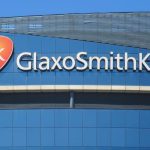Jazz Pharmaceuticals Faces Setback as PTSD Drug Fails Mid-Stage Trial

Jazz Pharmaceuticals (JAZZ.O) encountered a setback as its investigational drug, JZP150, designed for the treatment of post-traumatic stress disorder (PTSD), failed to meet the primary endpoint in a mid-stage study.
The announcement led to a decline of as much as 4% in Jazz Pharmaceuticals’ shares during after-market trading.
Key Details:
• Study Outcome: JZP150, intended to address PTSD, did not achieve the main objective in the mid-stage clinical trial. The drug failed to demonstrate a statistically significant reduction in the severity of PTSD symptoms, as measured on the Clinician-Administered PTSD Scale, when compared to a placebo after 12 weeks.
• Secondary Goals Unmet: The trial also did not meet its secondary goals, according to the company. The investigation involved two doses of JZP150, 4 milligrams, and 0.3 milligrams, administered to 282 adults aged 18 to 70 diagnosed with PTSD.
• Safety Signals: While the drug did not meet efficacy goals, Jazz Pharmaceuticals noted that there were no new safety signals observed for JZP150 during the study. The most common treatment-emergent adverse events included headache, nausea, and urinary tract infection, with predominately mild to moderate severity.
• PTSD Background: PTSD is a mental health condition triggered by a traumatic event, and it can affect individuals beyond combat scenarios, extending to experiences like natural disasters, abuse, or other forms of trauma.
• Strategic Decision: Following the trial outcome, Jazz Pharmaceuticals conveyed that it does not anticipate moving forward with additional development of JZP150, signaling a strategic decision based on the study results.
While the setback is evident, ongoing research and development in the field of mental health underscore the industry’s commitment to addressing unmet medical needs. The failure of JZP150 in this study highlights the challenges and complexities associated with developing effective treatments for mental health conditions like PTSD.





